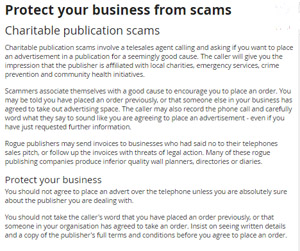Charitable Publication Scams
In the age of technology, scammers have refined their techniques, particularly in the realm of charitable solicitations. While many use the internet to exploit innocent individuals, some still resort to traditional methods. They may represent themselves as agents from established charity organizations, only to deceitfully obtain money under the guise of goodwill.
Door-to-door campaigns, for instance, have seen scammers deceiving people into subscribing to fake magazines under the premise that their money aids those in need. The allure of getting their names in charitable publications sometimes blinds individuals from seeing the scam.

Another emerging trend involves fraudulent activity on social media platforms. The popularity of sites like Facebook has given scammers a new arena to operate, where they can lure unsuspecting victims into their charity-related traps.
Whether online or offline, it's crucial to remain vigilant. Before donating, consider these precautions:
- Resist high-pressure sales tactics. A legitimate charity will never pressure you to donate immediately.
- Always read the terms and conditions. Legitimate magazine or charity companies provide clear and comprehensive terms.
- Scrutinize receipts and bills for any discrepancies.
In conclusion, while charity is a noble cause, it's essential to ensure your contributions are directed to genuine organizations. Stay informed, be cautious, and always research before donating.

